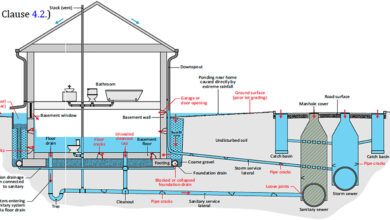System Engineer Jobs: 7 Powerful Career Paths You Must Know
If you’re tech-savvy, love solving complex problems, and thrive in dynamic environments, system engineer jobs might be your perfect career match. These roles are in high demand across industries, offering stability, growth, and exciting challenges.
What Are System Engineer Jobs?

System engineer jobs involve designing, implementing, and maintaining complex systems that integrate hardware, software, and networks to meet organizational needs. These professionals ensure that technology systems function efficiently, securely, and reliably across various platforms and environments.
Core Responsibilities of a System Engineer
System engineers are the backbone of IT infrastructure. Their day-to-day tasks vary depending on the organization, but core responsibilities remain consistent across most roles.
- Designing and deploying IT systems and architectures
- Monitoring system performance and troubleshooting issues
- Ensuring system security and compliance with industry standards
- Collaborating with development, operations, and security teams
- Automating routine tasks using scripting and configuration tools
According to the U.S. Bureau of Labor Statistics, employment for systems software developers—including system engineers—is projected to grow 25% from 2021 to 2031, much faster than the average for all occupations.
Types of System Engineer Roles
Not all system engineer jobs are the same. The field is broad and includes several specialized roles based on industry, technology stack, and organizational structure.
IT System Engineer: Focuses on internal IT infrastructure like servers, networks, and desktop systems.Cloud System Engineer: Specializes in cloud platforms such as AWS, Azure, or Google Cloud.DevOps System Engineer: Bridges development and operations, focusing on CI/CD pipelines and automation.Network System Engineer: Concentrates on network architecture, firewalls, and data transmission.Embedded Systems Engineer: Works on hardware-integrated software in devices like medical equipment or automotive systems.”System engineers don’t just fix problems—they anticipate them.Their value lies in building systems that are resilient, scalable, and future-proof.” — Tech Industry Expert, IEEE SpectrumWhy System Engineer Jobs Are in High DemandThe digital transformation of businesses has made system engineer jobs more critical than ever.
.As companies migrate to cloud platforms, adopt AI-driven tools, and strengthen cybersecurity, the need for skilled system engineers continues to surge..
Industry-Wide Digital Transformation
From healthcare to finance, manufacturing to retail, every sector is undergoing rapid technological change. Legacy systems are being replaced with modern, scalable architectures that require expert oversight.
For example, in the healthcare industry, system engineers help implement electronic health record (EHR) systems that comply with HIPAA regulations. In finance, they ensure transaction systems are secure, fast, and available 24/7.
A report by Gartner states that over 80% of enterprises will shut down their traditional data centers by 2025, shifting to hybrid and multi-cloud environments—creating massive demand for cloud-savvy system engineers.
Increased Cybersecurity Threats
With cyberattacks rising in frequency and sophistication, organizations need system engineers who can design secure architectures and respond to threats in real time.
- Implementing zero-trust security models
- Configuring firewalls, intrusion detection systems (IDS), and endpoint protection
- Conducting regular vulnerability assessments and penetration testing
- Ensuring compliance with standards like ISO 27001, NIST, or SOC 2
System engineer jobs now often include security-focused responsibilities, making them essential in safeguarding corporate data and infrastructure.
Essential Skills for System Engineer Jobs
To succeed in system engineer jobs, professionals need a blend of technical expertise, problem-solving abilities, and soft skills. Employers look for candidates who can adapt to evolving technologies and work well in team environments.
Technical Skills Every System Engineer Must Have
Technical proficiency is the foundation of any system engineer’s skill set. Here are the most sought-after competencies in the job market today.
- Operating Systems: Deep knowledge of Linux (Red Hat, Ubuntu, CentOS) and Windows Server environments.
- Networking Fundamentals: Understanding of TCP/IP, DNS, DHCP, VLANs, and routing protocols.
- Cloud Platforms: Experience with AWS, Microsoft Azure, or Google Cloud Platform (GCP).
- Scripting and Automation: Proficiency in Python, Bash, PowerShell, or Perl for automating repetitive tasks.
- Configuration Management Tools: Familiarity with Ansible, Puppet, Chef, or SaltStack.
- Virtualization Technologies: VMware, Hyper-V, Docker, and Kubernetes for container orchestration.
For example, a system engineer working in a DevOps environment might use Ansible to automate server provisioning and Kubernetes to manage containerized applications across cloud clusters.
Soft Skills That Set You Apart
While technical skills get your foot in the door, soft skills determine long-term success in system engineer jobs.
- Problem-Solving: The ability to diagnose issues quickly and implement effective solutions.
- Communication: Explaining technical concepts to non-technical stakeholders clearly.
- Team Collaboration: Working effectively with developers, network engineers, and security analysts.
- Time Management: Prioritizing tasks during system outages or deployment windows.
- Adaptability: Keeping up with fast-changing technologies and methodologies.
According to a LinkedIn Workplace Learning Report, 92% of hiring managers value soft skills as much as technical skills when evaluating candidates for system engineer jobs.
Top Industries Hiring System Engineers
System engineer jobs are not limited to IT companies. Virtually every industry relies on robust IT systems, creating diverse opportunities for skilled professionals.
Information Technology & Software Companies
Unsurprisingly, tech giants and software firms are among the biggest employers of system engineers.
Companies like Amazon, Microsoft, and Google hire system engineers to maintain their global infrastructure, manage cloud services, and support internal IT operations. These roles often come with competitive salaries, remote work options, and access to cutting-edge technologies.
For instance, at Amazon Web Services (AWS), system engineers help design scalable cloud solutions for enterprise clients, ensuring high availability and disaster recovery.
Financial Services and Banking
Banks and financial institutions require highly secure, reliable, and fast systems to process millions of transactions daily.
- Designing fault-tolerant systems for trading platforms
- Maintaining compliance with financial regulations (e.g., PCI-DSS, SOX)
- Implementing real-time fraud detection systems
- Managing data centers and hybrid cloud environments
System engineer jobs in finance often require security clearances and experience with high-performance computing environments.
Healthcare and Life Sciences
The healthcare sector relies heavily on system engineers to manage electronic medical records, telemedicine platforms, and medical imaging systems.
With the rise of AI in diagnostics and wearable health tech, system engineers play a crucial role in integrating new technologies into clinical workflows while ensuring patient data privacy under HIPAA.
Organizations like Mayo Clinic and Kaiser Permanente actively recruit system engineers with healthcare IT experience.
How to Get Started in System Engineer Jobs
Breaking into system engineer jobs requires a strategic approach combining education, certifications, hands-on experience, and networking.
Educational Background and Degrees
Most system engineer jobs require at least a bachelor’s degree in a relevant field.
- Computer Science
- Information Technology
- Electrical or Computer Engineering
- Network Engineering
While a degree is important, many employers also value practical experience and certifications. Some professionals enter the field through bootcamps or self-taught paths, especially if they can demonstrate strong technical portfolios.
For example, platforms like Google’s IT Support Professional Certificate on Coursera provide entry-level training that can lead to junior system engineer roles.
Key Certifications for Career Advancement
Certifications validate your expertise and make your resume stand out in competitive job markets.
- CompTIA A+ and Network+: Foundational IT knowledge
- CompTIA Security+: Cybersecurity fundamentals
- Microsoft Certified: Azure Administrator Associate
- AWS Certified Solutions Architect – Associate
- Red Hat Certified Engineer (RHCE)
- Cisco CCNA: Networking specialization
- ITIL Foundation: Service management best practices
Earning even one or two of these certifications can significantly boost your chances of landing entry-level or mid-tier system engineer jobs.
Salary Expectations for System Engineer Jobs
System engineer jobs are known for offering competitive compensation packages, with salaries varying based on location, experience, industry, and specialization.
Average Salaries by Experience Level
According to data from PayScale and Glassdoor, here’s a breakdown of average annual salaries in the United States:
- Entry-Level (0–2 years): $65,000 – $85,000
- Mid-Level (3–5 years): $85,000 – $110,000
- Senior-Level (6+ years): $110,000 – $140,000+
- Lead/Principal System Engineer: $140,000 – $180,000+
Salaries in tech hubs like San Francisco, Seattle, and New York City are typically 20–30% higher due to cost of living and demand.
Factors That Influence Earnings
Several factors can impact how much you earn in system engineer jobs:
- Geographic Location: Urban areas with high tech presence offer higher pay.
- Industry: Finance and tech sectors generally pay more than education or government.
- Specialization: Cloud, security, and DevOps engineers often command premium salaries.
- Certifications: Holding advanced certs like AWS Solutions Architect or CISSP can increase earning potential by 15–25%.
- Company Size: Large enterprises and multinational firms offer better benefits and bonuses.
Additionally, remote work has expanded earning opportunities, allowing engineers in lower-cost regions to work for high-paying companies based elsewhere.
Future Trends Shaping System Engineer Jobs
The role of system engineers is evolving rapidly due to technological advancements and changing business needs. Staying ahead of these trends is crucial for long-term career success.
Rise of Automation and AI Integration
Artificial intelligence and machine learning are transforming how system engineers monitor and manage IT environments.
- AI-powered monitoring tools can predict system failures before they occur.
- Chatbots and virtual assistants help automate user support and ticket resolution.
- Machine learning models optimize resource allocation in cloud environments.
System engineers must now understand how to integrate AI tools into existing workflows and interpret AI-generated insights.
For example, tools like Dynatrace use AI to provide real-time observability across hybrid cloud systems, reducing mean time to resolution (MTTR).
Shift Toward DevOps and SRE Models
The traditional divide between development and operations is fading. Modern system engineer jobs increasingly align with DevOps and Site Reliability Engineering (SRE) principles.
- Emphasis on continuous integration and continuous delivery (CI/CD)
- Infrastructure as Code (IaC) using Terraform or CloudFormation
- Automated testing and deployment pipelines
- Service-level objectives (SLOs) and error budgets
Google’s SRE model, detailed in their SRE book, has become a blueprint for many organizations aiming to improve system reliability through engineering practices.
Expansion of Edge Computing and IoT
As more devices connect to the internet, system engineers are needed to manage distributed systems at the network edge.
Edge computing reduces latency by processing data closer to the source—critical for applications like autonomous vehicles, smart cities, and industrial automation.
- Designing edge server clusters
- Securing IoT device communications
- Integrating edge systems with central cloud platforms
This trend creates new challenges in scalability, security, and real-time data processing—areas where skilled system engineers are indispensable.
How to Land Your Dream System Engineer Job
Securing a system engineer job requires more than just technical knowledge. A strategic approach to job searching, resume building, and interview preparation can make all the difference.
Building a Strong Resume and Portfolio
Your resume should highlight both technical skills and real-world impact.
- Use action verbs: “Designed,” “Implemented,” “Optimized,” “Automated.”
- Quantify achievements: “Reduced server downtime by 40%,” “Automated 50+ deployment tasks.”
- Include relevant certifications and projects.
- Create a personal website or GitHub profile showcasing scripts, configurations, or open-source contributions.
For example, a GitHub repository with Ansible playbooks or Terraform configurations can demonstrate hands-on experience to hiring managers.
Acing the Technical Interview
System engineer interviews often include technical assessments, scenario-based questions, and live troubleshooting exercises.
- Be prepared to explain how you’d troubleshoot a server outage or network latency issue.
- Practice whiteboard exercises on system design (e.g., “Design a scalable web application”).
- Review common scripting challenges in Python or Bash.
- Demonstrate knowledge of security best practices and disaster recovery planning.
Resources like HackerRank and LeetCode offer practice problems tailored to system engineering roles.
Leveraging Networking and Job Platforms
Many system engineer jobs are filled through referrals or professional networks.
- Join LinkedIn groups related to system administration, cloud computing, or DevOps.
- Attend industry conferences like AWS re:Invent, Microsoft Ignite, or DevOpsDays.
- Participate in local tech meetups or online forums like Reddit’s r/sysadmin or Stack Overflow.
- Use job boards like Indeed, LinkedIn Jobs, and Indeed’s system engineer jobs page to find openings.
Building relationships with professionals in your target companies can lead to insider referrals and faster hiring processes.
What qualifications do I need for system engineer jobs?
A bachelor’s degree in computer science or IT is common, but not always required. Employers value hands-on experience, certifications (like CompTIA, AWS, or Microsoft), and demonstrable skills in scripting, networking, and system administration.
Are system engineer jobs in demand?
Yes, system engineer jobs are in high demand due to digital transformation, cloud adoption, and cybersecurity needs. The U.S. Bureau of Labor Statistics projects 25% growth in related roles through 2031.
Is system engineering a good career?
Absolutely. System engineering offers strong salaries, job stability, continuous learning opportunities, and career advancement paths into cloud, security, or leadership roles.
Do system engineers need to code?
While not full-time developers, system engineers often write scripts in Python, Bash, or PowerShell to automate tasks, manage configurations, and integrate systems. Coding skills are increasingly essential.
Can I become a system engineer without a degree?
Yes. Many successful system engineers are self-taught or come from bootcamp backgrounds. Demonstrating skills through certifications, personal projects, and internships can open doors to entry-level system engineer jobs.
System engineer jobs are more than just technical roles—they are strategic positions that keep modern organizations running smoothly. From designing secure cloud architectures to automating complex workflows, system engineers are at the heart of digital innovation. With strong demand, competitive salaries, and diverse career paths, this field offers immense opportunities for those willing to learn and adapt. Whether you’re just starting out or looking to advance, focusing on core skills, earning key certifications, and staying updated on industry trends will set you on the path to success in system engineer jobs.
Further Reading:









